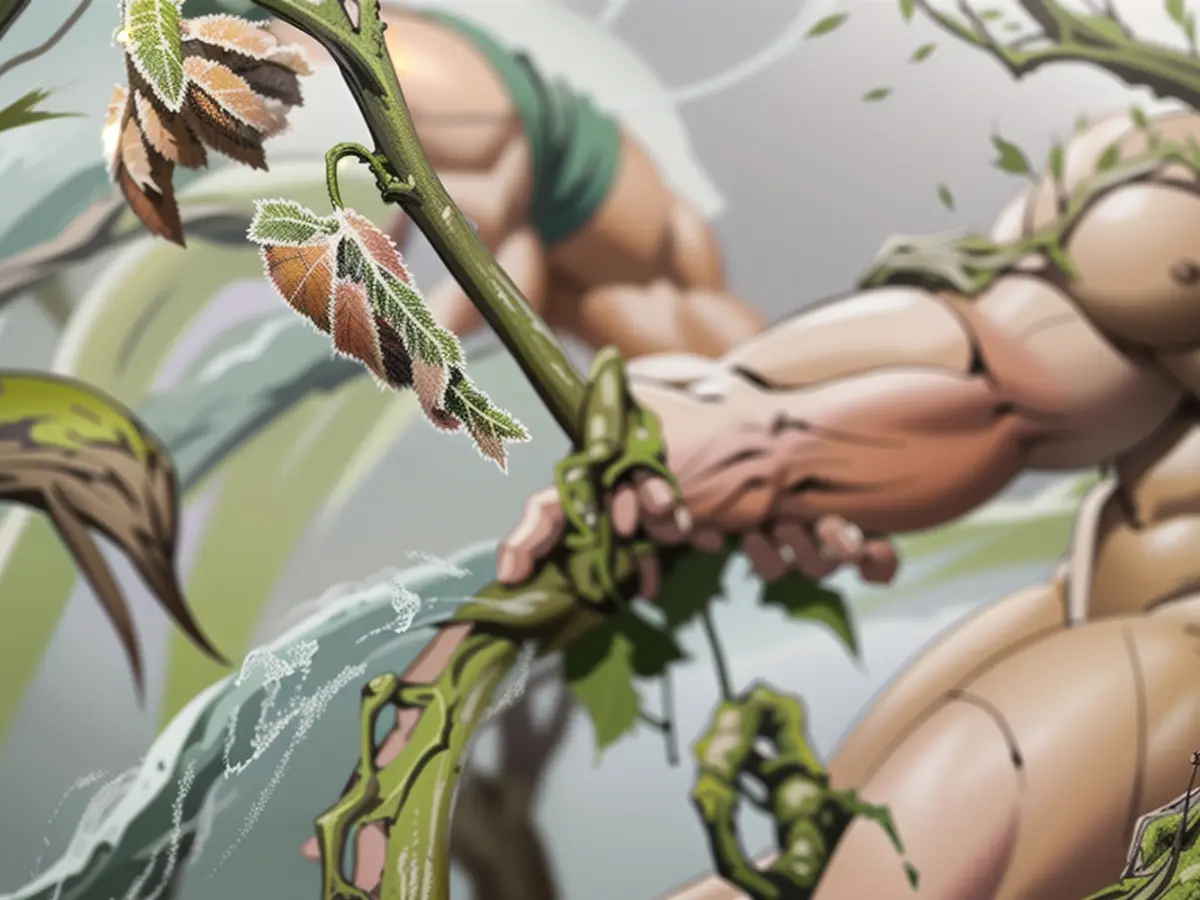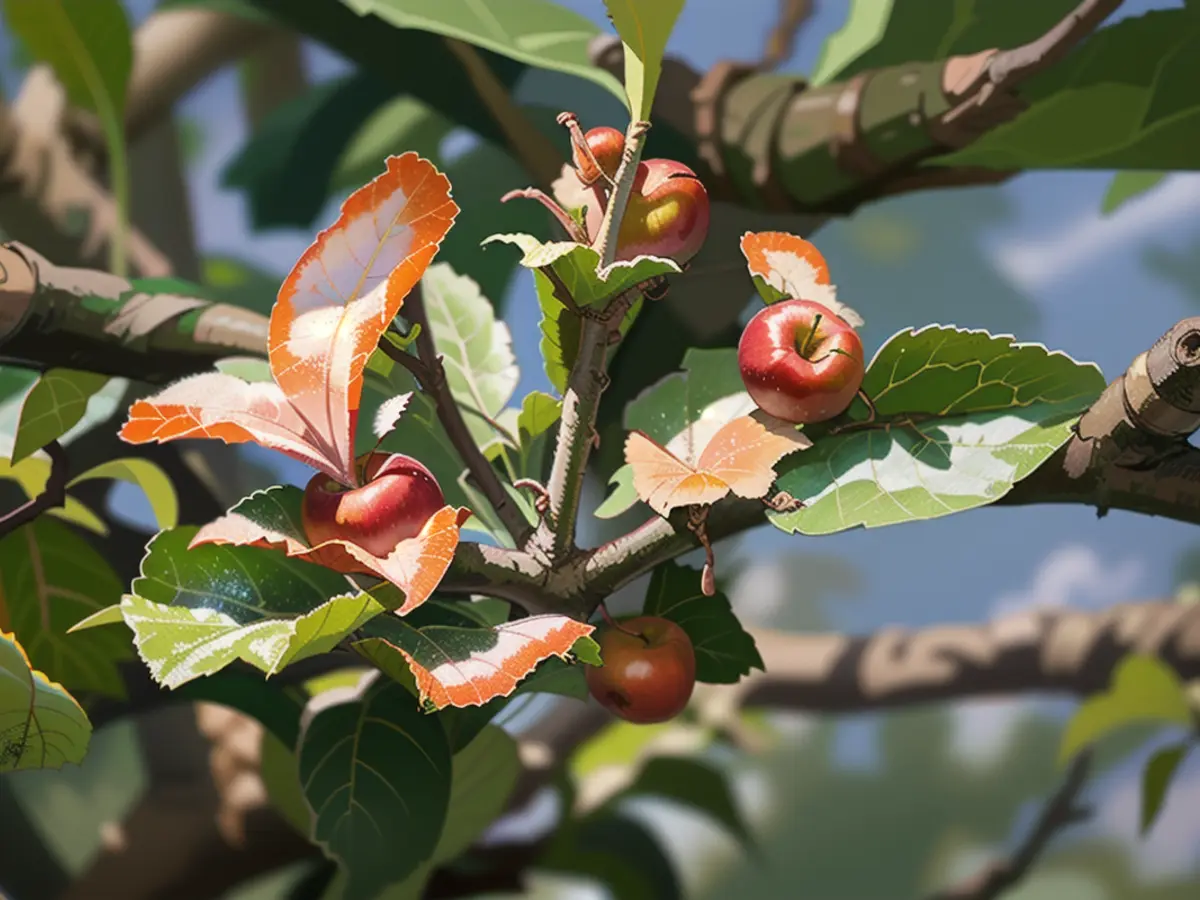Agriculturists are unexpectedly hit by a late frost.
Winter weather is becoming more extreme, with wet winters and dry summers, leading to bigger problems for agriculture. This has become evident this year, with farmers facing difficulties due to early frosts and challenging growing conditions.
The year isn't even half over, but farmers have already been facing the elements: the wet winter has caused complications for crop planting while late frosts have thwarted the harvest hopes of fruit and wine growers in eastern Germany. What's happening in Germany's fields, and how is climate change associated with these changes?
"This has never happened before," admits Felix Hößelbarth, chairman of the Saxony Winegrowers' Association. He discusses the severe frost that caused destruction in the wine-producing regions of Saxony and Saxony-Anhalt. "No hectare of vines in the growing region escaped," says the expert, shocked by the severity of the frost. The nights from April 21 onwards dropped as low as minus 6 degrees Celsius. Such extreme cold is rare; it typically affects hollow and valley areas, not steep slopes.
Drastic frost damage in Saxony
The frost damage was so severe that spring arrived earlier than usual, allowing vine buds to grow. Unfortunately, the persistent cold spells didn't spare the steep slopes, a rarity. Hößelbarth described the spring as exceptionally warm: "It was already very warm at Easter and budding was three to four weeks ahead of normal." The first 30-degree day in Germany occurred on April 6 - earlier than ever before. As a result, the young shoots were defenseless against this sudden, severe frost.
Many winegrowers are concerned about significant harvest losses. Hößelbarth predicts a loss of 30% to 40% of the usual harvest, an optimistic estimate. Although the vines have regenerated, experience shows that they produce far fewer grapes after such frosts. This frost could be a death blow to smaller businesses, which lack the reserves to weather these challenges: "Liquidity could become an issue."
Fruit growers in Saxony have been hit even harder. Fruit trees at lower altitudes had already started bearing fruit, and the frost damage has been extreme. "The frosts will have a significant impact on harvest volumes," confirmed Saxony's Minister of Agriculture, Wolfram Günther. Damage to stone fruits is catastrophic, and apples, cherries, as well as quinces, and apricots along the Elbe, have all been affected to varying degrees.
Millions of euros in agricultural damage
"Vereinigte Hagel" anticipates that the damage across Germany could exceed 500 million euros. This vast loss is the result of spending across all Germany's agricultural regions. The extreme frost saw extensive devastation in Saxony and Saxony-Anhalt, Rheinhessen was also severely affected.
Andreas Köhr from the Rhineland-Palatinate South Farmers' and Winegrowers' Association believes the damage stems from climate change. "There used to be frosts at this time of year, even harsher frosts at one point," he said. However, these early blooming seasons have increased the risk of frost damage. It was once thought that German Wine would benefit from climate change. However, this sentiment is changing for many winemakers.
Very wet in the north versus dry in the east
In northern Germany, farmers are struggling with another set of issues. April was incredibly wet in the region, with rainfall levels two and a half times the average for the month. This excessive rain poses problems for agricultural machinery.
However, towards the end of April, the weather improved slightly, with windy conditions aiding the situation. Daniela Rixen, press secretary at the Schleswig-Holstein Chamber of Agriculture, spoke to ntv.de about the unexpected upside. "We don't want to speculate about possible crop failures," she says. "Nature has a high capacity to compensate," Rixen believes. Still, the rainy winter has substantially delayed or even completely halted the sowing of winter wheat. But farmers are now racing to plant their fields.
Yet, in the east, these farmers would prefer some of the water from the north. Andreas Jahnel, head of the arable and crop farming department at the Saxon Farmers' Association, asks for "a wet May - and not too warm, that would be nice." With water shortages in Saxony, Saxony-Anhalt, and Thuringia, particularly in deeper soil, the potential for crop failure is real. "Where crops have missing sections, this could foreshadow a drought," he warns.
The changing weather patterns bring new challenges each year, with farmers facing a host of difficulties, including excess water in some areas and extreme frost in others. As climate change continues to impact our environment, the agricultural industry must adapt and find innovative solutions.
Farmers are once again facing issues with available water in the topsoil, although it's not as severe as during the drought that began in 2018. Despite this, many farmers show signs of concern on their foreheads. "Farmers are always considering what works for their land, looking for suitable solutions. However, their options for adapting are restricted because cultivation needs to be economically viable. Why would they grow something they can't sell?" comments Jahnel.

Read also:
- This will change in December
- Dikes withstand water masses so far - Scholz holds out the prospect of help
- Fireworks and parties ring in 2024 - turn of the year overshadowed by conflicts
- Attacks on ships in the Red Sea: shipping companies avoid important trade route
- The severe frost damage in Saxony and other regions can be linked to climate change, as extreme weather events like this are becoming more common due to global warming.
- The late frost in eastern Germany has not only affected wine growers but also fruit farmers, leading to significant losses and potential financial struggles for many small businesses.
- The changing weather patterns, including wet winters and dry summers, are presenting new challenges for farmers, requiring them to adapt their practices and find innovative solutions to ensure crop survival.
- Educating farmers about climate change and its impact on weather patterns is crucial, as they need to be equipped with the knowledge to adapt their farming methods and protect their crops from extreme weather events.
Source: www.ntv.de







